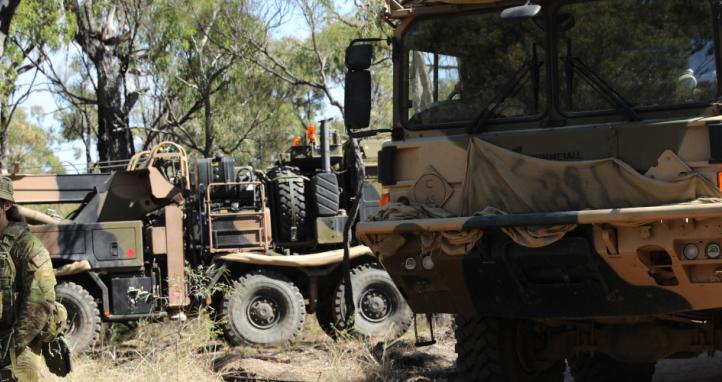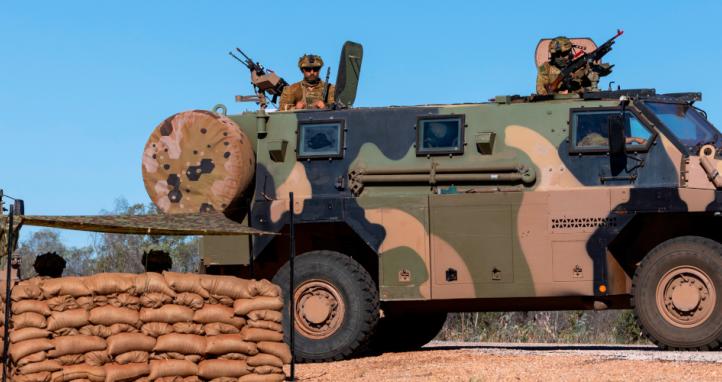Lieutenant William Thomas Dartnall, VC (1885 - 1915, 30yo)
 William Thomas was born on 6 April 1885 in Melbourne and pursued acting following his education. At age 16, he participated in the South African War with the 5th Victorian (Mounted Rifles) Contingent. Dartnell remained in South Africa when World War One commenced. He travelled to England and enlisted with the 25th (Service) Battalion, Royal Fusiliers as a temporary Lieutenant on 12 February 1915.
William Thomas was born on 6 April 1885 in Melbourne and pursued acting following his education. At age 16, he participated in the South African War with the 5th Victorian (Mounted Rifles) Contingent. Dartnell remained in South Africa when World War One commenced. He travelled to England and enlisted with the 25th (Service) Battalion, Royal Fusiliers as a temporary Lieutenant on 12 February 1915.
August 1915 found the Battalion headquartered at Voi, Kenya with two companies positioned at Maktau for frontier patrol duties. Dartnell received assignment to a mounted infantry patrol on 1 September, and two days later, his unit encountered an ambush near Maktau. The subsequent engagement left him with leg wounds while being evacuated, when he recognised that severely injured personnel could not be withdrawn. ‘Knowing that the enemy’s black troops murdered the wounded’ he ‘insisted on being left behind in the hopes of being able to save the lives of the other wounded men’. Despite two requests for his departure, he commanded his soldiers to abandon him and commenced firing upon Germans positioned within twenty-five yards of his location. Discovery of his remains revealed seven enemy casualties surrounding his position. His posthumous Victoria Cross recognised his sacrifice in a ‘gallant attempt to save others’.
Dartnell’s interment took place in Voi cemetery, East Africa. A wife and daughter survived him.
Corporal Phillip Davey, VC, MM (1896 - 1953, 57yo)

Phillip Davey was born on 10 October 1896 at Unley, South Australia and secured employment as a horse-driver following his education. Davey joined the Australian Imperial Force (A.I.F) on 22 December 1914.
His departure occurred on 2 February 1915 from Melbourne with the 10th Battalion’s 2nd reinforcement, traveling to Egypt and Lemnos before the Gallipoli assault on 25 April 1915. He participated in the initial landing and subsequent four days of intense combat. His involvement continued through trench warfare operations until medical evacuation from the peninsula due to enteric fever. Following treatment at the 1st Australian General Hospital at Heliopolis, Egypt, he returned to Australia in January 1916. June brought Davey’s re-deployment with the 10th Battalion’s 18th reinforcements to England. He rejoined his battalion in France during September before their Hill 60 positioning in the Ypres area. Accidental wounds occurred on 15 March 1917, with gas exposure on 3 October. At Warneton, Belgium, in the Messines area on 3 January 1918, Davey earned the Military Medal for venturing into no man’s land under intense fire to retrieve a severely wounded colleague. His brother Claude, serving within the same battalion, had received identical recognition the previous year, merely three months before his Bullecourt death in 1917. Another brother, Richard, also received this honour.
Corporal promotion followed on 24 April 1918. He participated in enemy position attacks at Merris, France on 28 June. His platoon encountered concentrated fire with their commander’s death forcing survivors into ditch shelter under nearly direct German machine-gun fire. Davey executed a solitary assault on the enemy installation before returning for additional hand-grenades; his renewed attack eliminated the crew and secured the weapon. He positioned the machine-gun in a fresh location and operated it effectively during counter-attack operations until sustaining wounds. His courage and persistence in this engagement earned him the Victoria Cross.
Years of bronchitis and emphysema preceded his death from coronary occlusion at the Repatriation General Hospital, Springbank, on 21 December 1953. His burial with complete military ceremony took place in the A.I.F. Garden of Memorial cemetery, West Terrace, Adelaide.
Last Reviewed 06/2025










My father was interested in this, and knew many things on the subject but has unfortunately passed away.
My sister was doing a family tree a few years, will check if she went that far back,
Cheers.